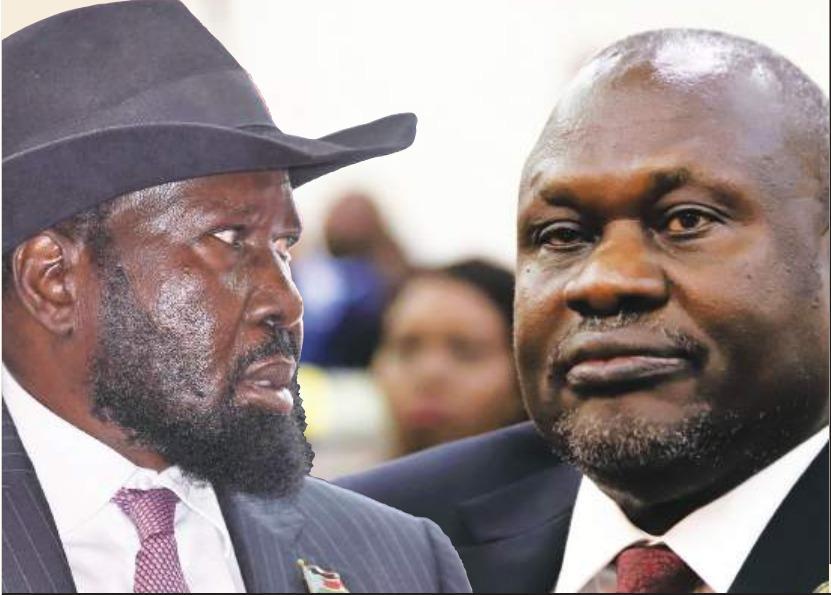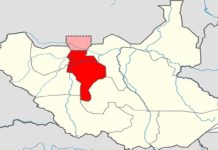Yiep Joseph
Africa-Press – South-Sudan. A disagreement between the executive and legislature over the increment of salaries for civil servants and organised forces has allegedly triggered the adjournment of the third reading of the budget.
On Tuesday, the Parliament abruptly adjourned a sitting that was supposed to discuss the budget in its third reading, and the lawmakers were expected to pass the budget. While the details behind this postponement were scanty throughout Wednesday, The City Review learnt on Thursday evening that a sharp difference of opinion among the main parties over salary increments may have occasioned the delay as leaders sought a consensus.
Addressing the 31st RJMEC monthly meeting for the Revitalised Joint Monitoring and Evaluation Commission (RJMEC) on Thursday, Dr. Elia Lomuro, the minister of cabinet affairs, who represented RTGoNU in the meeting, said till now, the executive and the legislature had not agreed on the new salary increment.
“The FY 2023/2024 budget, having been submitted on time, is now at the final stage of parliamentary approval, but with different opinions. The executive and the RTNLA differ over the increase of civil servant and security sector salaries,” Lomuro said.
He added that the differences lay in whether to pay the civil servants and those in the security sector a 400 per cent salary increment at once or gradually.
“The executive wants salary increments to be gradual in consideration of the inadequate resources enveloping a huge budget deficit, while the parliament is for a single-step increase within the budget ceiling by making large reductions from critical government institutions,” he said.
“The executive recommended a 400 per cent increase in salaries for civil servants and the security sector,” he added.
Dr. Lomuro lamented that the differences had turned out to be costly as the parties had taken strong stances over the matter.
“The differences between the executive and the RTNLA have now polarized the parties’ signatories to the agreement. The SPLM-IO and SSOA support the position of the parliament, while the SPLM and its allied parties support the position of the executive,” he said.
He added that such division in opinion has placed a delay on the funding of government institutions and threatens the implementation of the peace agreement. He added that the process would later be determined through voting.
“With such a difference, it is likely that FY 2023–2024 will be determined through democratic voting. Till then, payments earmarked for the organs of the agreement shall remain outstanding,” he said.
However, according to the letter dated August 8, 2023, issued by the Minister of Finance and Planning, Bak Barnaba Chol, to Speaker Jemma Nunu Kumba, the executive and the ministry of finance, in particular, disagreed with the 600 per cent salary increment, due to a lack of resources.
“I want to reiterate that the proposed increment of 400 per cent is what is attainable and sustainable for our nation and the people due to the following, lack of resources to meet the increment of 600 per cent,” Bak said.
“We are already worried about how to fulfill the obligation on the increment of 400 per cent due to limited resources,” he added.
The Transitional National Legislative Assembly increased the salaries and wages for civil servants and the army in the FY2023–2024 budget, raising the wage bill to SSP 699 billion from SSP 400 billion.
Changkuoth Bichiock Reth, Chairperson of the Committee for Finance and Economic Planning, said in order to cover the newly adjusted salary increment, the committee had to make cuts in other areas within the budget ceiling.
Dr. Abraham Maliet, an economist,sided with Mr Chol, saying the country’s economy can only sustain a 400 per cent salary increment at the moment.
“I think a 400% salary increment is better and can be sustained compared to the 600% increment as proposed by the parliamentary,” Abraham said.
“The budget is already cut, and for any increase, unless some review is done, most institutions that are suspected to have received a huge ratio are cut to meet the salary increment,” he added.
Source: The City Review South Sudan
For More News And Analysis About South-Sudan Follow Africa-Press






